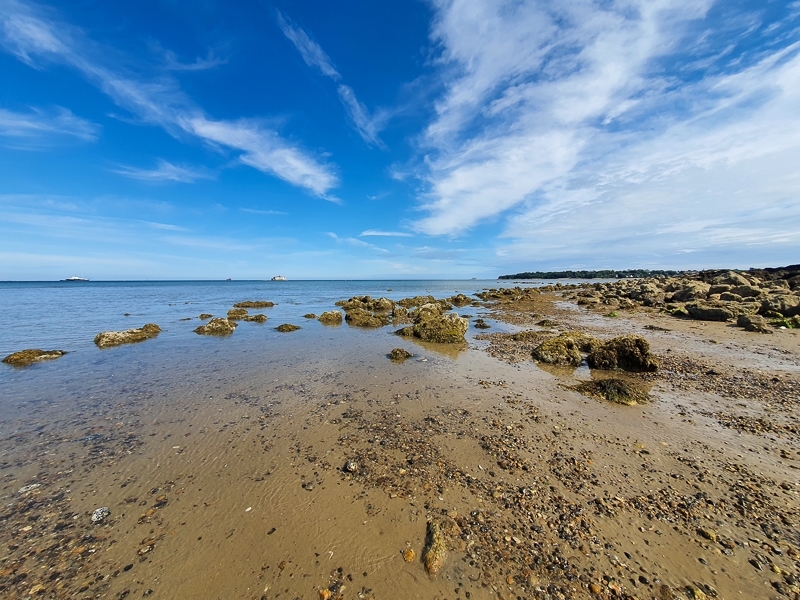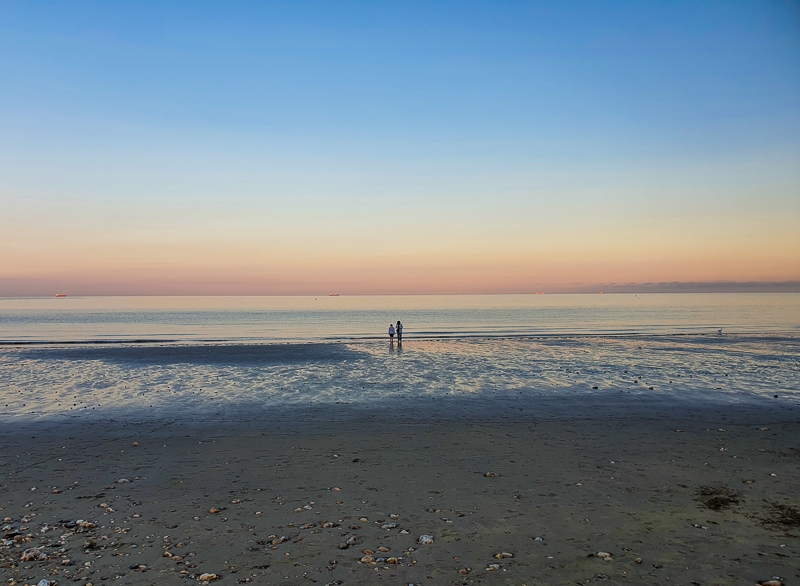5 STEPS TO CHANGE YOUR MINDSET AWAY FROM CONSUMERISM

WHAT IS CONSUMERISM?
Most of us have a consumerist mindset, unless we’ve made a lot of effort to move away from that way of thinking.
A consumerist mindset doesn’t just mean that you consume – we all consume, and there’s no way around that – it’s a mindset that is ‘characterized by a preoccupation with the acquisition of consumer goods’.
A preoccupation with buying more stuff is contributing to climate change as well as filling our land and oceans with rubbish. Most of us know that we should reduce our drive to consume, but where do we start?
THIS POST IS BIG PICTURE
The important thing to note - and you'll be relieved to hear it - is that this is not an article containing everyday tips for reducing waste. I'm not going to show you a mason jar containing a few bottle caps and some folded crisp packets, tell you that's my yearly waste output, and then follow it with lots of glaringly obvious or privileged ways to reduce waste.
Partly that's because this isn't just about waste, but mainly it's because that's the easy bit. It's easy to buy food that isn't in plastic wrapping (if you have access and means). It's easy to realise a reusable water bottle is probably a good idea. It's not rocket science that growing your own veg is good for the planet.
To be honest, nothing I'm about to say is rocket science either, but it's important stuff that's often overlooked. So, let's get on with it: how can you change your mindset to guide yourself away from consumerism (and be happy about it)?
1. Take some time to reflect on your goals and values
Dedicate time to self-reflection. Trying to reduce your consumption against your own goals will be a struggle and make you miserable.
It's important to realise that consumerism is something we are socialised into, and socialisation - the process of learning to behave in a way that is acceptable to society - is extremely effective at forming deeply held beliefs that are difficult to unlearn (or even realise you’ve been taught).
It's about to get deep, but I want you to think about the answers - the real answers, not the interview answers - to these questions. You don't have to answer them right now but try to consider them when they crop up in your life.
What are your life goals, and what interests are they organised around?
What do you value or respect in other people and other people's lives?
What do you spend your time thinking and daydreaming about?
It's surprising how often our answer to these questions brings us back to our consumerist socialisation and doesn't chime with what we truly value. Many of our goals, priorities and values are tied to buying and consuming. Most of the time, this is harmful to us - it leaves us feeling unfulfilled and empty, and doesn't represent who we really are.
When you figure out which aspects of your goals and values are based in consumerism and don't represent the real you, you'll be able to work on reshaping them.
I've always hated clothes shopping with a passion rivalled only by my hatred of people eating with their mouths open. Spending money on clothes never made me feel happy, only anxious. Yet for years when I pictured what I'd be able to do with a higher salary, I thought of buying clothes. Walk-in closets full of stuff.
What was going on? Here I was, aiming for something I didn't really want. Daydreaming about something that held no real interest for me. Why? Because we've been socialised our entire lives, by the industries that profit from consumerism, to believe a whole host of values rooted in the idea that buying more stuff is always a good thing, to the extent that it makes it difficult for us to work out who we really are and what really makes us happy.
It was the same for what I coveted about other people's lives. I used to look longingly at the Instagram pages of people with huge closets. These are the people I held up as "goals". How bizarre, when I have no interest in fashion.
Once you start pulling the thread, much of the stifling jumper unravels and you're left with what's important. Some of what's important to you might involve consumption, but I promise it won't contain anywhere near as much as you think, and you’ll probably be able to step away from being preoccupied with consumption.

What really makes you happy?
2. Take some time to think about the impact that advertising has on you
This is part of unravelling unhelpful socialisation. It's not some tinfoil hat conspiracy theory - it's out in the open.
Many companies make a profit by getting us to believe we want to buy things and they do that through exposing us to content that makes us think we want or need something when we would otherwise be happy without it. It isn't exactly hush hush.
Think back through your life at the way that consuming has been presented to you in films, television, and advertisements.
There is a marked contrast between that portrayal and the portrayal of life priorities in books (less obviously tied to advertising revenue) - perhaps why many of us are drawn to the latter.
Think about the effect that this might have had on how you think about your desire for more stuff.
Much like we absorb unconscious bias through constant socialisation, we absorb the tendency towards over-consumption, too. If you can identify sources of this over your lifetime, you can start to pick apart where the real you ends and the consumerist socialisation begins.
Even being able to recognise content that is driven at over-consumption is a good start.
3. Reshape that landscape
When you know which factors are influencing your desire to consume, consider which you'd like to keep in your life.
Marie Kondo revolutionised the way many people think about their belongings with her method of tidying up (it’s cooler than it sounds). Under her Konmarie method, you sort through everything you own and decide whether it brings you joy; you keep only what brings you joy, and lovingly donate or discard the rest. She teaches you to apply this principle when bringing new things into your home too.
You can Konmarie your consumerism mindset too: which aspects of the desire to consume bring you joy? Real joy – not taught expectations.
Some people will tear away the over-consumption but still have something – or lots of things - that involve consumption as part of the real them, and that's okay.
Even so, everyone can benefit from curating their exposure to consumerist messaging. Because here's the thing: the nagging desire to constantly over-consume doesn't just wreck the environment, it also makes us unhappy. It's designed to be a bottomless pit of needless wants.
Today, the easiest way to reshape the pressures is to choose your social media exposure carefully. Keep elements that truly are part of who you want to be within your heart, but cut out all that stuff you only include because you grew up thinking you should be interested in it.
When I realised I wasn't fussed about having a huge closet, that it wasn't a true interest of mine, I unfollowed all of the accounts that used to give me a constant barrage of "haul" videos. I replaced them with more accounts that I am truly interested in - about nature and literature. My Asos ordering dwindled, as did my nagging feeling of always needing to buy more clothes. Couple that with reading Marie Kondo and learning to value my possessions more and voilà- much reduced consumption on the fast fashion front.
There were aspects of consuming that I kept as part of my real self – like buying nature books – but I focused on turning my mindset from consumerism (which is a preoccupation with buying consumer goods) to mere consuming (as something I do from time to time, but not something I aspire to or am preoccupied with).
On social media, I swapped from content about people buying books to content about people enjoying books, so that my focus was on taking the time to enjoy books and deriving joy from that experience, rather than feeding an unrelenting need to buy more.

I follow photography pages that don't focus on gear and purchases
4. Find out what you really value in others
Think about the people you surround yourself with and identify what it is about them that you value.
Sometimes it's easy to see through consumerism here. For many people, you'll know straight away that you value their integrity, their humour, or their honesty.
You'll probably find though that for some people you look up to the edges are a little hazy. Consumerism starts to creep in.
You find yourself realising you look up to someone because they "have it all together" and when you peel back that label, you realise that you've equated having it all together with wearing an expensive watch, ordering a lot of stuff online, and driving a Range Rover.
This isn't to say your relationships of respect are vacuous. Most of the time once you scratch away another layer, you'll realise you respect that Range Rover-driving person because they work hard, because they support those around them, because they're intelligent. Or they might just be a spearhead of consumerism, in which case you can stop looking up to them.
It's getting stuck in that layer in-between that has us chasing over-consumption that we don't really want. We might know we want to be like another person in some way, but if we interpret that as wearing what they wear and buying what they buy, we're missing the mark.
This is how people power towards midlife crises. They're taught their whole life to value material things and when they get there, to that ideal, they realise that was never what they wanted. So, they take a sabbatical and travel around trying to find themselves or dig themselves in deeper and buy a sports car.

What do you value in others?
5. Practice being true to yourself
Unlearning unwanted socialisation is hard. It's not easy to unlearn the desire to over-consume or stop hitching your hopes, dreams, and values to the pursuit of buying stuff.
Practicing distancing yourself from consumerism doesn't mean constantly chastising yourself for every purchase. It doesn't mean agonising over whether to buy the book you want to read, or going to live off the land in a remote part of the Scottish Highlands (although that does sound appealing).
What it means is taking a step back every now and again, and learning to recognise and intercept unhelpful thoughts.
I've left much of the need for over-consumption behind, but I still find myself defaulting to "needing" a new outfit for every event, clicking on Insta ads for products I'm barely interested in, looking for replacements for things I have no need or desire to "upgrade" (whatever that means).
We can pull ourselves back from these thoughts and remind ourselves of what we're really about and what makes us happy. This kind of practice will soon make it second nature to think again when the desire to consume washes over us, and we can then give it a yay or nay depending on if it gels with who we are and what we want, rather than what we're told to want.
Changing your mindset away from consumerism is important - far more important than learning tips and tricks for reducing waste or spending a load of money buying (in the face of irony) eco-friendly versions of everything you own.
It's important because it will allow you to reduce your unnecessary consumption without being unhappy about it. It will allow you to find out what's truly important to you, and let you make room for those aspects of consumption that really do matter to you as a person. And that's good for you and the planet as well as your bank balance.
Share with your friends
Subscribe to learn more
Join me in exploring our natural world and cultural heritage as we learn how to protect and restore it. Get notified on my latest posts and a monthly newsletter on wider conversation topics for us to chat about.
Recent Posts
If you enjoyed this one, then you might like these too.